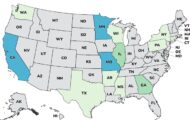When it comes to reducing the amount of antibiotics in livestock, a voluntary policy isn’t very effective, an environmental advocacy group, Public Employees for Environmental Responsibility (PEER), has learned. The group has obtained documents that show that the U.S. Food & Drug Administration (FDA’s) current strategy of hoping the livestock industry will, without incentive or penalty, voluntarily give up using drug-laced feed has not been successful.
 “These documents show that FDA’s public health strategy is to whistle past the graveyard, as more people are pushed beyond the help of medically vital drugs,” stated PEER Counsel Kathryn Douglass who filed the FOIA suit. “In the foot-thick stack of materials FDA surrendered there is not a shred of evidence that industry is working to phase-out injudicious use of these drugs.”
“These documents show that FDA’s public health strategy is to whistle past the graveyard, as more people are pushed beyond the help of medically vital drugs,” stated PEER Counsel Kathryn Douglass who filed the FOIA suit. “In the foot-thick stack of materials FDA surrendered there is not a shred of evidence that industry is working to phase-out injudicious use of these drugs.”
Tens of thousands of Americans die each year from drug-resistant Super Bugs that owe their existence, in part, to the overuse of drugs in livestock feed, according to PEER. About 80 percent of all antibiotics manufactured in the U.S. are used in livestock feed.
In one of the documents obtained by the group the FDA admits that it “collects insufficient data on drug use…to measure the effectiveness of the strategy.” Another memo states “If the voluntary approach does not achieve our goals, there are several regulatory options available to us.” The options were redacted in documents obtained by PEER, which obtained them after filing suit against the FDA after a Freedom of Information Act request was rejected.
PEER is a national non-profit group of local, state and federal scientists, law enforcement officers, land managers and other environmental professionals.




